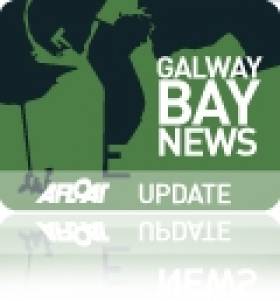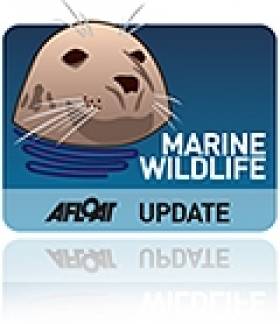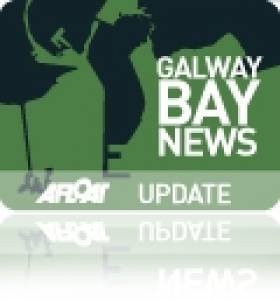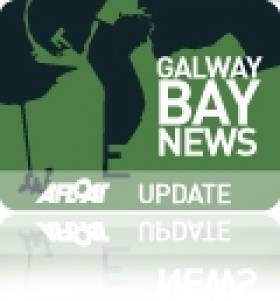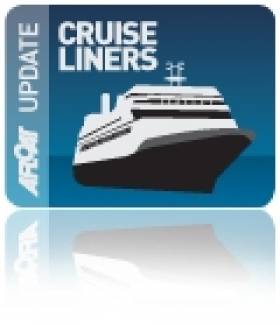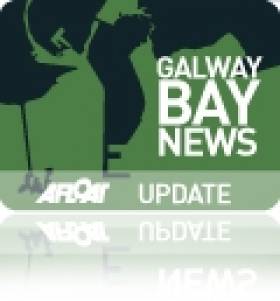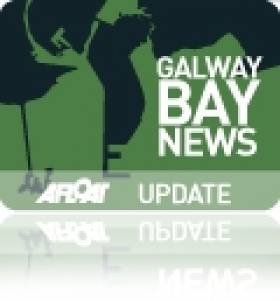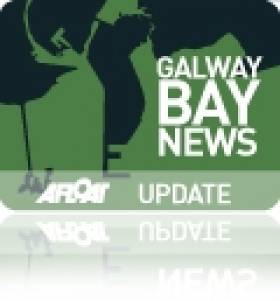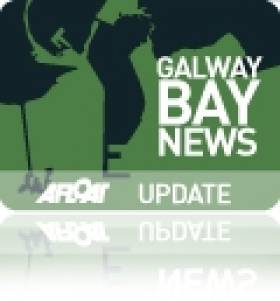Displaying items by tag: Galway Port
Galway Port Expansion Verdict Delayed Again
#GalwayPort - Planners' verdict on multi-million euro expansion plans for Galway Harbour have been postponed for another four weeks, according to Galway Bay FM.
As previously reported on Afloat.ie, the planning appeals board has gone back and forth on the €126 million docks redevelopment scheme since January's oral hearing, and was originally set to announce its decision yesterday (Friday 11 September).
However, that date has now been revised by An Bord Pleanála to Friday 9 October, the latest postponment for a decision previously expected in early August, and before that in early summer.
Galway Harbour Hearings Roundup: Mayor Shows Full Support, Infrastructure Questioned, Alternatives Proposed
#GalwayHarbour - Galway's mayor reiterated his full support for plans to redevelop the city's port on the final day of An Bord Pleanála's hearing into the €126 million scheme.
As The Irish Times reported last weekend, Mayor Donal Lyons said the port expansion was vital for the future of the city, echoing claims that Galway Harbour could face terminal decline unless the redevelopment goes ahead as planned.
The potential economic benefits were raised by Esmond Keane SC, on behalf of the Galway Harbour Company, who said "it is not feasible to suggest that cruise tourism could be relocated to another port away from Galway."
Ian Lumley of An Taisce made a final submission questioning the wisdom of developing a new port that "lacks connection" to the national road transport infrastructure.
The Shannon Foynes Port Company also dismissed claims that there were no viable alternatives to the expansion, citing its own status as a 'Tier 1' deepwater commercial port that operates on a 24-hour basis compared to Galway's more modest plans.
That came after Galway West TD Noel Grealish's earlier rejection of Shannon Foynes' objections as "spurious" and motivated by "self-interest".
Previously the hearing also heard from town planner Aiden O’Neill, who said the Galway Harbour scheme went against a number of State policies such as the 2013 National Ports Policy.
"Long-standing" proposals for a deepwater quay at Rossaveal, on the north shore of Galway Bay in Connemara, were suggested as an alternative to bolster the current Galway Port, while fishing and cycling representatives expressed their various concerns over the impact of the redevelopment.
Two weeks of evidence will now be evaluated by An Bord Pleanála with a full report expected by the end of March. The Irish Times has more on the story HERE.
Storm Surge, Flooding Concerns Expressed At Galway Port Plan Hearing
#GalwayPort - Severe flooding and storm surges will be the reality for Galway on a regular basis if the project to extend the port goes ahead as planned, the oral hearing into the scheme has heard.
According to The Irish Times, various groups, including Ireland's national trust An Taisce, have expressed fears over the risks to the city and its environs from a rise in sea levels and increased river flow that would be caused by the €126 million port expansion.
These concerns come in spite of the city's harbourmaster stating a year ago that flooding events would occur more regularly "with or without" the port development.
Marine conservation was also a hot button topic at the hearing yesterday (Wednesday 14 January) as Inland Fisheries Ireland and others outlined the potential ill effects on already vulnerable wild salmon stocks and other species in Galway Bay.
The Irish Times has more on the story HERE.
#GalwayPort - Galway Port's ambitious expansion proposals are facing objections from Limerick - but a Galway TD has accused Shannon Foynes Port of trying to 'torpedo' his city's plans.
As reported on Afloat.ie earlier this year, the Galway Harbour Company lodged plans to significantly expand its existing footprint to compete for future shipping business, especially the new generation of cruise liners.
But according to the Galway Independent, that planning application resulted in a submission by the Shannon Foynes Port Company, which operates the west coast's only designated Tier One port.
The submission asserted the commercial aspects of Galway's proposals go against European and national ports policy, by failing "to recognise the hierarchical structure of ports at a national and international level."
But Galway West TD Brian Walsh has dismissed the Shannon Estuary port's complaints, hinting at sour grapes over Galway's "ambition".
The Dáil deputy, who was also a member of the committee that first pushed proposals for Galway Port's expansion, added that he “wouldn’t trust the [Shannon Foynes Port] company to assemble flat-pack furniture, let alone develop a state-of-the-art commercial port.”
The Galway Independent has much more on the story HERE.
Tomorrow Is Last Day For Submissions On Galway Port Expansion
#GalwayPort - Galway Bay FM reports that more than 50 submissions - the majority of them supportive - have been made to An Bord Pleanala on proposals for the expansion of Galway Port in the public consultation that closes tomorrow Tuesday 11 March.
As previously reported on Afloat.ie, the plans as lodged involve a significant 27 hectare expansion of the port's footprint into Galway Bay, a move seen as "critically important for the economic future of the entire western region" according to Galway Harbour company chief executive Eamon Bradshaw.
The port extension will also see most harbour-related activities relocated from the existing dock area to the new deepwater berths, quays, jetties and yards that are expected to future-proof the port to accommodate larger shipping and cruise liner traffic.
While the notion of reclaiming land from the harbour has sparked some concern among local residents and businesses taking stock after a damaging series of storms and their attendant floods earlier this year, the city's harbourmaster said in January that such flooding will occur more regularly "with or without" the port expansion.
Largest Residential Cruise Liner is Galway Bound
#CruiseLiners - The world's largest residential cruise liner is set to visit the City of the Tribes next week, according to the Galway Independent.
The floating town known as The World is expected to arrive in Galway Bay next Monday 8 July for a single night's stay after a similar stop this morning at Belfast and later this week at Derry.
Distinct from other cruise liners that ply the oceans, The World comprises a residential community of some 130 families who between them own the 12-deck, 200-metre-long vessel.
Galway Harbour Master Captain Brian Sheridan described The World's visit as "a great opportunity to showcase the city and the region to its passengers and a welcome economic boost" - despite the ship being too large to enter Galway's inner harbour.
Providing berthing space for the modern generation of cruise ships is one of the goals of the planned expansion of Galway Port, though it emerged this week that the planning application had still not been submitted to An Bord Pleanála.
The Galway Independent has more on The World's visit HERE.
Galway Port Expansion '99 Per Cent Ready To Go'
#GalwayHarbour - Plans for the expansion of Galway Harbour are "99 per cent ready to go", as the Galway Independent reports.
Eamon Bradshaw, CEO of the Galway Harbour Company, said that the application for the new development would be submitted by the end of June.
As previously reported on Afloat.ie, the scheme will be the first Irish project lodged under new legislation that provides for planning permission on the grounds of "overriding public interest".
Bradshaw says that the necessary Natura Impact Statement has been completed, and economic and financial details were now being finalised for the redevelopment project at the harbour, recently recognised by the Government as a 'port of regional significance'.
Should it get the go-ahead from An Bord Pleanála, the new harbour will extend almost 1km out to sea with 660m of quay berth and plenty of space for cargo and container ships, oil tankers, fishing vessels and passenger ships.
The project will be completed in four phases, with the first €50 million phase extending the port by some 57 acres to accommodate a greater number of commercial ships and modern cruise liners.
Galway City Council recently granted extra time to the Galway Harbour Company for pre-expansion demolition works in the docks area.
The Galway Independent has much more on the story HERE.
Galway Harbour Co Gets Extra Time for Pre-Expansion Works
#GalwayPort - Galway Bay FM reports that the Galway Harbour Company has been given extra time by city councillors for the demolition of buildings in the docks area to make way for the upcoming port expansion.
Planning permission was granted five years ago for the removal of the Centre Pier building, which had been earmarked at the time as the location for a media centre for last summer's Volvo Ocean Race finale.
Now the Galway Harbour Company has three more years as it seeks further planning permission for the first phase of its expansion plans, as previously reported on Afloat.ie.
#GalwayPort - Galway's city manager has welcomed the recognition of Galway Port by Government as a 'port of regional significance'.
As previously reported on Afloat.ie, the National Ports Plan launched this week brings about a move away from a 'one size fits all' policy in the ports sector to a three-tier stricture that recognises the different roles that Ireland's ports play in the economy at both a national and regional level.
Galway Port is one of 14 ports, five of them in State hands, that account for some 8% of national trade, and which will be placed within a local authority-led governance and shareholding structure.
Galway Bay FM quotes city manager Joe O'Neill as saying that it's as yet to early to speculate on plans to transfer control of the port to the local authority before the necessary legislation is put in place.
It is also unclear whether it will be the city, county or a combination of both that would be responsible for the port in the coming years.
Meanwhile, the Galway Harbour Company is expected to seek planning permission for the first phase of its expansion plans shortly.
In January, Afloat.ie reported on a 'fast-track' on the cards for the redevelopment scheme after plans were revived in August last year.
The new first phase, at a cost of €50 million, will see the port extended by some 57 acres to accommodate a greater number of commercial ships and the new generation of cruise liners.
And as Galway Bay FM confirms, the plans will be lodged with An Bord Pleanala under IROPI (Imperative Reasons of Overriding Public Interest) legislation.
Galway Port Plans Must Look To The Future Says Ex Statoil Head
#GalwayPort - A former director of Statoil has said Galway needs to look "10, 20 or 30 years ahead" to make use of the vast potential of the marine sector amid plans for the redevelopment of the city's port.
As the Galway City Tribune reports, Stein Bredal made a six-day visit to the City of the Tribes during which he proposed that proper management of the Galway Port scheme would create thousands of long-term jobs across a number of sectors.
He posited his home city of Stavanger in Norway as an example to follow. The city - with double the population of Galway - has become a service hub for Norway's west coast oil and gas fields.
And Bredal believes Galway could become the same for Ireland's offshore reserves, not to mention tourism (in the form of local hospitality and berths for cruise liners) and aquaculture (such as the proposed deep-sea organic salmon farm off the Aran Islands).
“You need someone in this city to think 10, 20, or 30 years ahead," he said. "You need to give hope to the young generation, that they don’t need to emigrate to Australia or New Zealand, that the service jobs can be located here."
As previously reported on Afloat.ie, fast-tracking of pans for the €200 million redevelopment of Galway Port is on the cards thanks to a clause in EU regulations that allows for planning applications to be made under IROPI (Imperative Reasons of Overriding Public Interest) legislation.



























